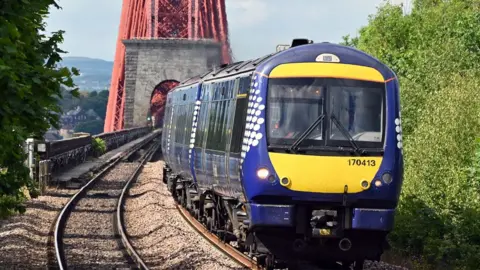Scotland ends peak rail fares — raises questions for the rest of the UK
ScotRail scraps higher prices for morning and evening peak travel as passenger numbers remain below pre-pandemic levels; experts say wider rollout would be complicated
ScotRail has abolished higher peak-time rail fares, saying there is now enough capacity on services to remove the surcharge that traditionally penalised travel during morning and evening rush hours.
The Scottish government-owned operator said the move reflects changed travel patterns since the Covid-19 pandemic and the fact that commuter volumes have not returned to previous levels. Under the change, passengers no longer pay more for journeys before 9 a.m. or between 5 p.m. and 7 p.m., the periods commonly designated as "peak" on UK railways.

The peak and off-peak pricing system was designed to discourage travel at the busiest times by making peak tickets more expensive, easing congestion on trains. Officials at ScotRail, and at least some passengers who spoke to the BBC, said lower commuter volumes mean the purpose of peak pricing no longer applies on many Scottish services.
"There's plenty of capacity for people to travel with us," David Ross, chief operating officer at ScotRail, told BBC Radio 4's Today programme. The operator's decision was announced amid ongoing debate about whether similar moves could be made elsewhere in the UK.
Some commuters welcomed the change as a potential long-term saving and a simplification of fares. However, transport experts and industry figures warned that removing peak pricing could have unintended consequences if applied more broadly. They said it might push up fares at other times to recoup revenue or cause crowding if demand shifted into previously higher-priced windows.

The prospect of extending Scotland's approach to the rest of the UK is complicated by differences in how rail services are run. In Scotland, the train operator is publicly owned, giving the Scottish government direct control over fare policy. In England and Wales, services are provided by a mixture of publicly owned companies and private operators under various contracts and agreements with the Department for Transport, meaning fare changes would involve multiple stakeholders and contractual adjustments.
Industry analysts noted that the pandemic permanently altered commuting patterns for many workers, with increased remote and hybrid working reducing peak demand on some routes. Yet rail usage across the UK has not uniformly returned to pre-pandemic levels, and patterns vary by city and line, complicating any one-size-fits-all policy change.
Passenger groups and unions have also weighed in, stressing that any change in pricing should be accompanied by guarantees on capacity and service quality. Transport authorities would need to assess the fiscal impact, as lower peak fares could require greater subsidy or restructured fare bands to maintain operator revenues.

ScotRail's decision adds to growing debate about how best to set fares in a post-pandemic travel environment. While the policy may become a model for publicly controlled networks, onward adoption across the UK would depend on local demand profiles, contractual frameworks, and the willingness of national and regional governments to absorb any revenue changes. For now, the move stands as a clear example of how altered travel patterns are prompting reassessments of long-standing ticketing structures.